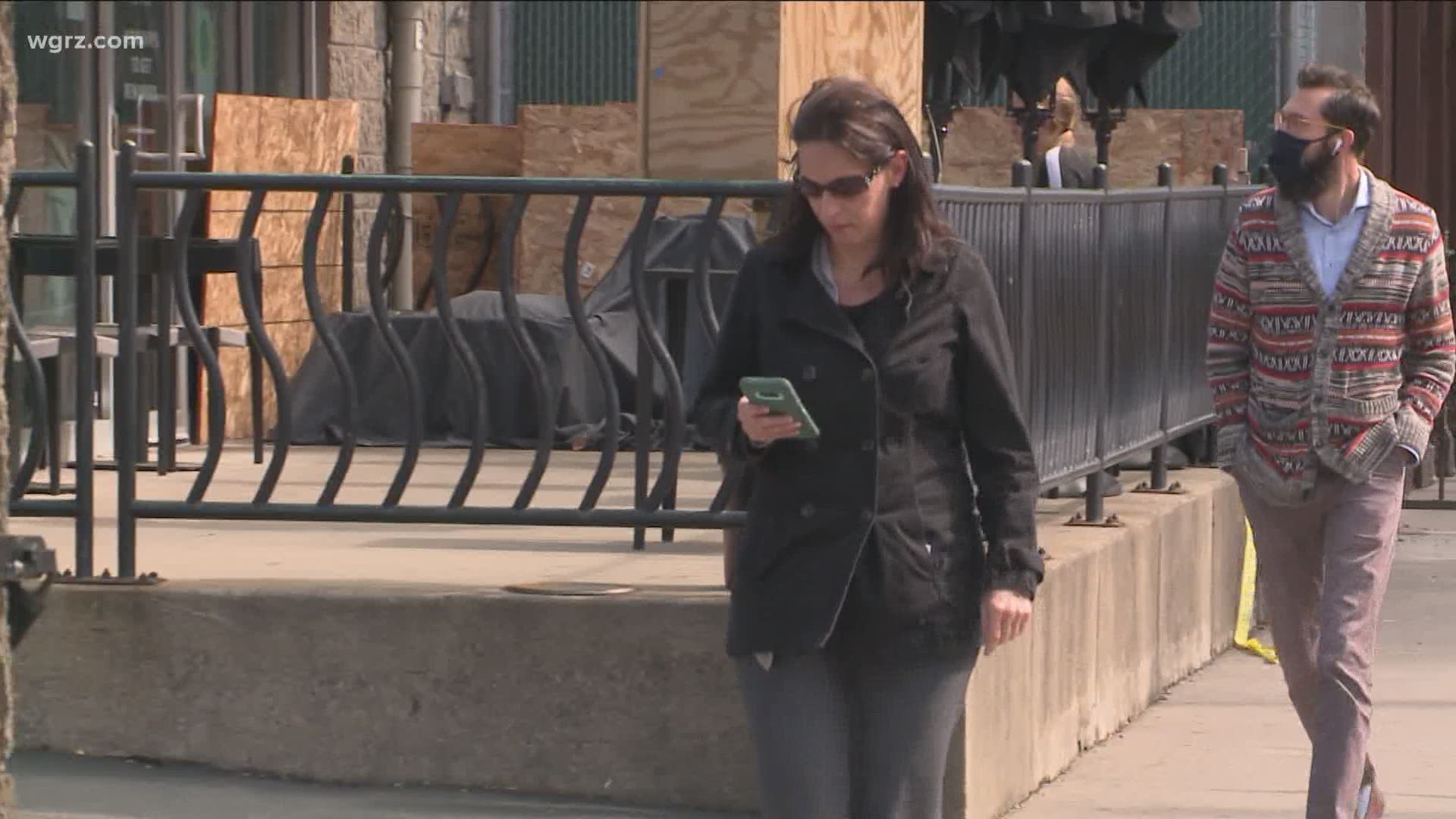BUFFALO, N.Y. — Data released by New York State on Thursday shows the seven-day rolling average of new cases per 100,000 residents in the Southern Tier region is 12.57.
According to New York, an average over 10 new cases per 100,000 residents is cause for other states to be added to the travel advisory list and subject to a 14 day quarantine.
The Southern Tier's current average of 12.57 is the highest for any region in the state. The Mid-Hudson region has the second-highest average at 8.84. The Western New York Region, for comparison, is 5.20 and the statewide average is 5.25 new cases per 100,000.
2 On Your Side reached out to the Governor's Office first on Wednesday and multiple times on Thursday to ask about the number of new cases in the Southern Tier. The message was sent to a spokesperson for the State Department of Health who did contact us.
Despite the region's average, the spokesperson said there are no new restrictions for the region or travelers there.
The Southern Tier region is an eight-county region comprised of Broome, Chemung, Chenango, Delaware, Schuyler, Steuben, Tioga, and Tompkins counties.
Human coronaviruses are usually spread through...
• The air by coughing or sneezing
• Close personal contact, such as touching or shaking hands
• Touching an object or surface with the virus on it, then touching your mouth, nose or eyes before washing your hands.
Help stop the spread of coronavirus
• Stay home when you are sick.
• Eat and sleep separately from your family members
• Use different utensils and dishes
• Cover your cough or sneeze with your arm, hot your hand.
• If you use a tissue, throw it in the trash.
Lower your risk
• Wash your hands often with soap and water for at least 20 seconds. If soap and water are not available, use an alcohol-based hand sanitizer.
• Avoid touching your eyes, nose, and mouth with unwashed hands.
• Avoid close contact with people who are sick.
• Clean and disinfect frequently touched objects and surfaces.
• If you are 60 or over and have an underlying health condition such as cardiovascular disease, diabetes or respiratory illnesses like asthma or COPD, the World Health Organization advises you to try to avoid crowds or places where you might interact with people who are sick.


